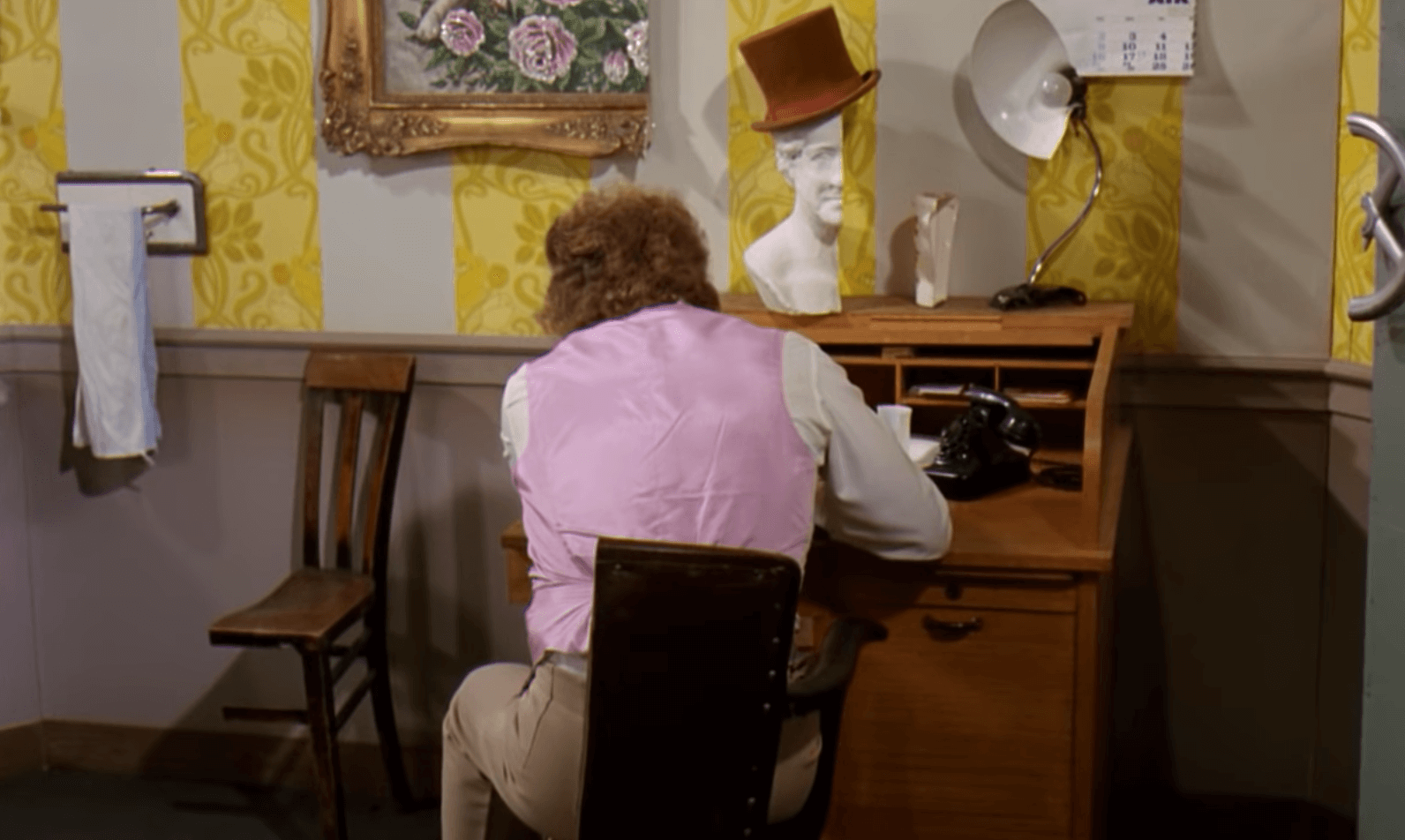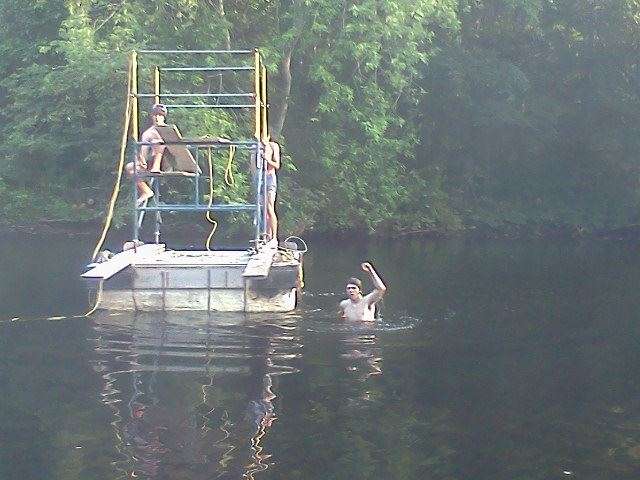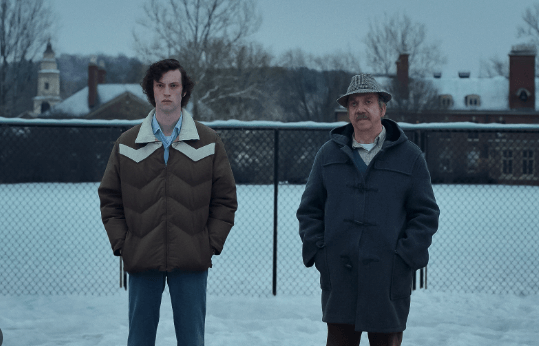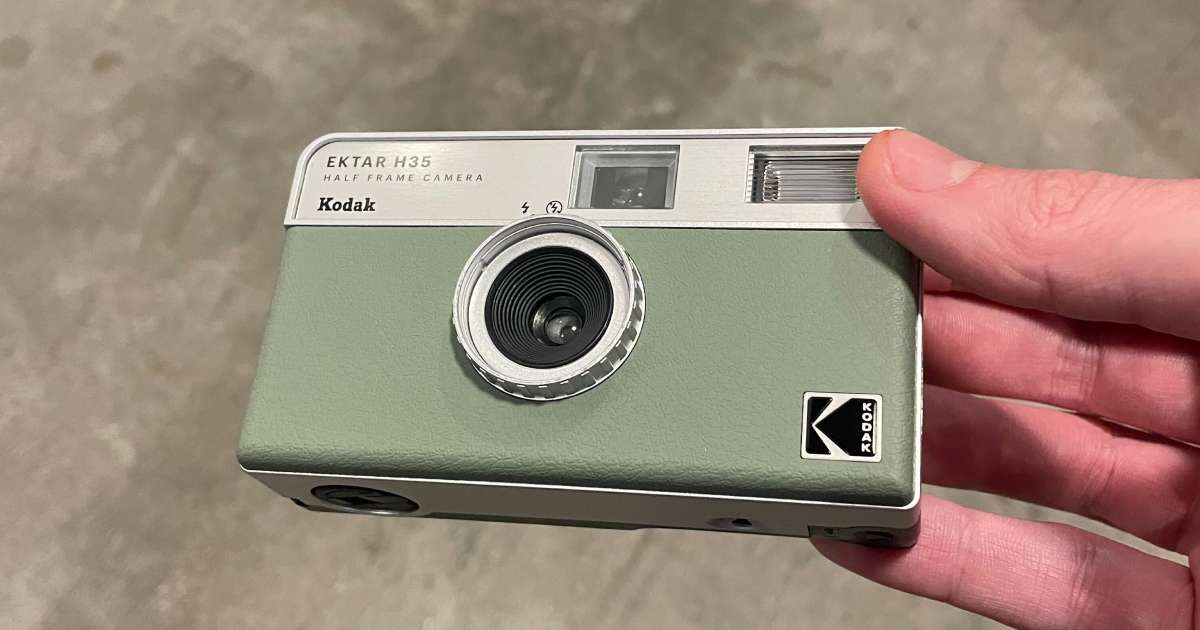PredictIt season is upon us: the story of how I doubled my money betting on the 2020 election, and exploring the potential for round 2 in 2024
December 17th, 2023
•8 min read
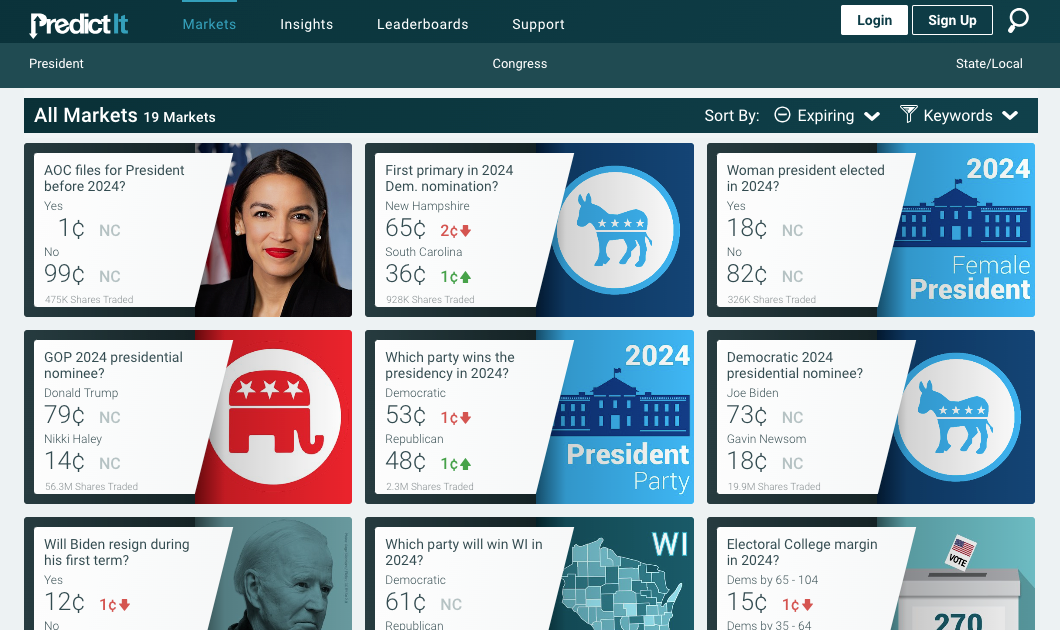
A fool and his money are soon parted.
Primary season for the 2024 Presidential Election begins in a few weeks—starting with New Hampshire and Iowa.
While the official start of the 2024 election cycle means many things for many people, in one corner of the world/internet, it means it's time to make some money.
In 2020 I caught wind of a new and legal way to bet on US politics: PredictIt.org It is a site the allows you to place limited bets on political events, using a clever, market-based system based on buying “shares” of outcomes. I discovered the site in the weeks before the 2020 Biden vs. Trump election and, after comparing the markets on the site to popular polling data, it seemed that many of the people betting on the site had virtually no respect for polling data whatsoever.
Specifically, the site seemed flooded with Trump voters who, thanks to the surprise of the 2016 election, felt that the polls were underestimating Trump once again. While believing that the polling data was underestimating Trump again was not crazy, the extent to which these market-setting bettors believed the polls were off, based on the bets they were placing on the site, was batshit.
Looking at the pricing on the site, across the board, these Trumpsters were implying a margin of error ~2 standard deviations away from standard margins of error for polling. In short, they were betting that the margin of error for the 2020 election polls would not just be larger, but significantly larger than it was in 2016.
It seemed like an easy opportunity to make some cash—so easy, I thought there had to be a catch. But while the site does take a fee on winnings, and there is a max limit on each individual bet ($850, last time I checked), I calculated that I could make a virtually risk-free ~30% return on any money I put into the site. While 30% return is not exactly hitting the lottery, it is an incredible rate of return for a single event, and would absolutely fast-track the growth of my young portfolio.
As it turned out, I was selling myself short. I actually went on to make over 100% return on the ~$7,000 I placed on bets across the site, ending with ~$14,000 total. How? I was able to make way more money than I originally thought because of the unique mail-in ballot situation.
If you remember the night of the 2020 election, it started out looking really good for Trump, but this was only because the mail-in ballots were the last to come in, and the mail-in ballots skewed significantly Democrat. Of course, the pundits calling the election on TV pointed out this fact every 5 seconds, but evidently this was still not enough to prevent the bettors of PredictIt from losing their cool.
As the first wave of votes came in, giving Trump early leads in most states (as expected), the markets on PredictIt went wild, and the cost of buying shares in a Biden victory in many states became even cheaper than they already were. Watching this panic unfold in real time—both via group chats with friends and family, and the actual markets on PredictIt—I knew that if I played my cards right and rolled my winnings from the first states to call the election into the states that had not yet called a winner, I could make way more money than I had originally thought possible. It was going to be a long night. My roommates in my cramped Pacific Beach apartment thought I was crazy as I made myself another pot of coffee at 8pm and strapped in.
My strategy remained conservative, based purely on polling data, and with no guess work involved. I only bet on Biden to win in states that were not closely contested, and, even then, as a baseline margin of safety, I assumed a massive 8% margin of error in the polls that skewed entirely in Trump’s direction.
When the dust settled the next morning—despite, if memory serves, the election still being ongoing thanks to the slowness of Arizona and chaos in Georgia—every single bet I had placed had paid off. It was hard to believe I had made so much easy money in such a short period of time, based on such a boring strategy. But it felt great. Outside of this, I had never been a gambler, but I now totally understood the gambler’s high. There is something about noticing an opportunity, actually taking the risk to act on it, and then having it pay off that makes you feel valid and alive.
Buzzing from victory and a fat pay day, I naturally wondered if I could repeatedly make money like this on PredictIt, even outside of a major election. In short, the answer seems to be no. I occasionally check back in on the site, and while there are definitely some tempting markets, there is no widespread, systemically lopsided stuff going on like there was during election week in 2020.
I’m assuming the reason for this is simple: outside of the major elections, the core of chronic PredictIt bettors is made up of people who are generally more highly-educated and statistically aware—nerdy, political, Nate Silver-y types. But once the major election cycle gets going, hordes of inexperienced “normies” show up to the site—with their dubious grasp of probability theory and wacko conspiracy theories in tow—and this is where the money is. It’s very much a seasonal movement. Waiting for election season as a PredictIt regular is like being a shop owner in a ski resort in the fall: just counting down the days until the out-of-towners show up with their money.
Unlike sports gambling, where you’re betting against odds makers who may be better at math than you, on sites like PredictIt you’re betting against someone else. “You don’t have to be smarter than [an odds maker],” says Derek Phillips, a 38-year-old creative writing PhD dropout who for several years made his living exclusively from PredictIt and earned some $140,000 in 2016 (presidential election years offer the biggest prizes; midterms are more of a little bump). “You have to be smarter than somebody who believes that Trump is going to win the election that he already lost.”
- quote from an article by Courtney Rubin in Fast Company
It feels necessary to pause here and say that I do care about America and what happens in this country politically, and when it comes to the fragmentation of our country, the rise of conspiracy theories, and the general/concerning trend toward authoritarianism, the current state of things makes me feel extremely concerned and sad. Despite this, I am not some pessimistic, red-pilled type. I am a voter, and outside of the current PredictIt/betting context that I’m writing this article in, I have a political self who does not think nor care about the money/betting side of politics that PredictIt enables.
I have also thought about whether it is wrong to essentially take money from people who show up to a website to effectively place bets on their deranged political theories. The verdict is in: I don't care. If anything, it's good for them—few things are more sobering and educational than losing money due to your beliefs. I actually rank losing money trying to beat the stock market as a teenager as one of my most fortunate and formative developments. It taught me a ton about how irrational the emotions that take hold of you can make you when your wallet is on the line, and undoubtedly saved me from a lot of pain down the road (for example, I was able to skip and ignore the crypto craze that seemed to claim many young men’s souls during the pandemic).
The point is, as I sit here waiting for election season to start, I like to think of the privilege to place bets on PredictIt as a small reward/consolation for sitting through and participating in the misery of American politics in general. In the coming weeks, I, like everyone else, will be paying increasingly more attention to politics and the election. In tandem, I will also be paying more attention to what’s going on on PredictIt. If I notice any opportunities like the one I saw in 2020, I’ll post about them here. However, as a baseline, I’m not going to get my hopes up and will assume that the easy-money days are over. But we’ll see.
God bless America.
